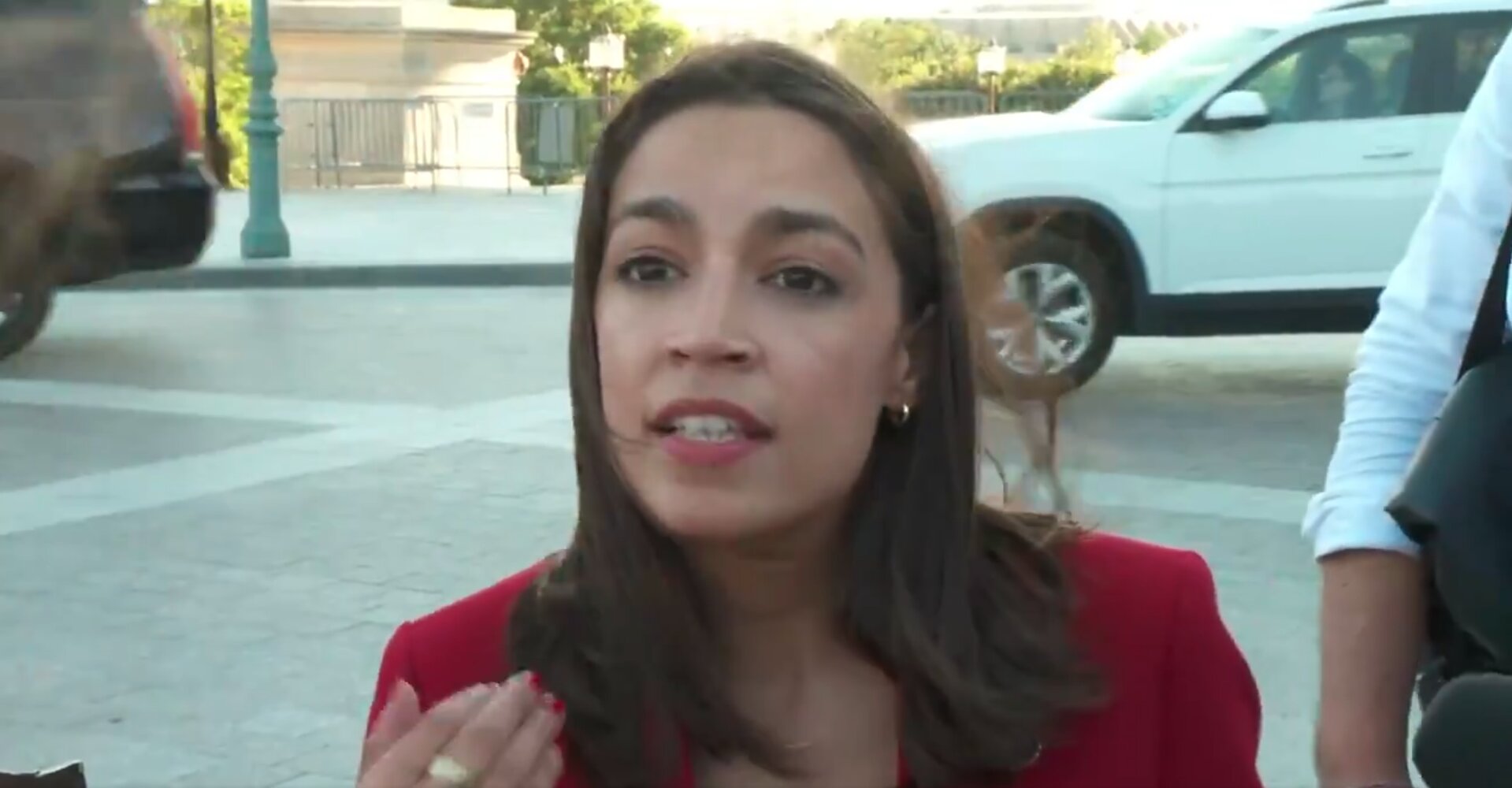Rep. Alexandria Ocasio-Cortez (D-N.Y.) says if senators want to pass a bipartisan infrastructure package, they should be willing to pass an additional spending bill as well.
Speaking to reporters on Tuesday, the New York Congresswoman said, “The Senate has its chosen priority in a bipartisan bill. And the House has its priority in its reconciliation bill.”
“The Senate doesn’t run the show. The Senate doesn’t tell the White House what to do, the Senate doesn’t tell the House what to do. They’re a co-equal partner in all of this. And so if the Senate really wants to run with their bipartisan bill, and they want to get on that, then they should give on reconciliation,” she added.
Watch the video below:
.@RepAOC: "The Senate doesn't run the show. The Senate doesn't tell the White House what to do, the Senate doesn't tell the House what to do… if the Senate really wants to run with their bipartisan bill… then they should give on reconciliation." pic.twitter.com/k0R8FAhU86
— The Hill (@thehill) June 29, 2021
Her comments come after President Joe Biden announced that he had made a deal on the framework for a bipartisan infrastructure package, as IJR reported.
House Speaker Nancy Pelosi (D-Calif.) and Senate Majority Leader Chuck Schumer (D-N.Y.) have signaled that they want to pass a bipartisan infrastructure package and a separate spending package together. As Schumer told reporters on Wednesday, “One can’t be done without the other.”
In order to pass most legislation, Democrats would need at least 10 Republicans to vote in favor of it to overcome a filibuster.
Congressional Democratic leaders want to pass the bipartisan infrastructure package, as well as a separate spending bill. For the additional spending bill, they are looking at using a process known as budget reconciliation which would let them pass a bill with more of their priorities with just Democratic votes.
With the budget reconciliation process, Democrats can pass legislation if all 50 of their members in the Senate vote for the bill and Vice President Kamala Harris casts the tie-breaking vote.
Speaking to reporters at the White House on Thursday, Biden appeared to say he would not sign the bipartisan bill unless the Senate passes the reconciliation bill.
“I expect that in the coming months this summer, before the fiscal year is over, that we will have voted on this bill, the infrastructure bill, as well as voted on the budget resolution. But if only one comes to me, this is the only one that comes to me, I’m not signing it. It’s in tandem,” he said.
His comments sparked outrage among Republican lawmakers who helped craft the infrastructure plan and concern that Republicans may withdraw their support for the bipartisan bill.
However, in a statement on Saturday, he said that “My comments also created the impression that I was issuing a veto threat on the very plan I had just agreed to, which was certainly not my intent.”
After Biden’s statement, moderate Republicans signaled that they would not back away from the bipartisan deal.
Sen. Joe Manchin (D-W.Va.), a key Democratic vote if they choose to move forward with a reconciliation bill, said on Tuesday that he could support passing both bills but would not support linking the two bills.
























